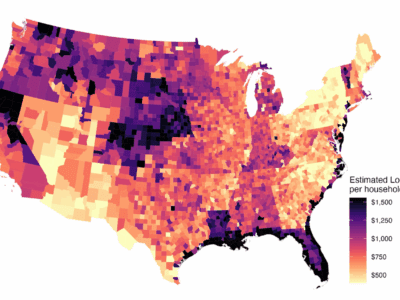Right-wing populist environmentalism?
The future of environmentalism may include a right-wing, populist strain that is heavily NIMBY
While there is a lot of focus on left-wing NIMBYs in public discourse, there’s also a lot of right-wing NIMBY mobilization too. For instance, the conservative California city of Huntington Beach is leading the resistance to state efforts to require upzoning to facilitate housing. Conservative rural communities are often the locus of opposition to both wind power and solar power development. One could dismiss this opposition as motivated more by culture war positions on renewable energy and apartments.
But maybe not. Last month, Marjorie Taylor Green, who is often on the bleeding-edge of right-wing political position taking, came out in opposition to President Trump’s efforts to advance data center construction. Her rationale: the water impacts of data centers are too severe.
Another example is this article about a fight in a very conservative, exurban Tennessee county between Republicans who support rapid residential development, and Republicans who want to use zoning laws to block sprawling development that displaces farms. Both sides wrapped their arguments in conservative political rhetoric, whether it is respecting property rights or protecting traditional lifestyles.
And one can see another aspect in the incorporation of Robert Kennedy Jr. into right-wing populist politics – while Kennedy has only focused on policy positions that do not conflict with agribusiness (and so has avoided taking on issues around pesticides), one could see a movement that is skeptical of at least some forms of technological innovation as gaining purchase in a populist conservative movement.
So we may see the rise of bipartisan environmentalism in the future. But on some issues there will be a sharp divide between the right-wing and left-wing (or center-left wing) variants, on issues such as climate change, siting renewable energy, and (perhaps) advancing dense infill housing development. We might see NIMBYism (which I define here, non-pejoratively, as an effort to empower local communities to resist development projects that might be a high priority at a regional or state level) becoming increasingly right-coded in its politics. And on other issues, we might see convergence between different perspectives. For instance, on some issues, such as opposition to geoengineering and carbon capture, you are already seeing agreement between left-wing environmental justice activists and right-wing populists. If these changes occur, the implications for environmental law and politics will be interesting, as traditional coalitions around environmental issues become scrambled.
Reader Comments
One Reply to “Right-wing populist environmentalism?”
Comments are closed.







Excuse me, but why would protecting farmland be considered right-wing?
We all depend on farmers and farm products. If anything, I think the left ignores growers and farmworkers too much.
And I still want that pipeline. In fact, maybe we need to attach a second hose to the other end of the Colorado. Human beings are animals too. It may have been a mistake to settle the West, but too late now.